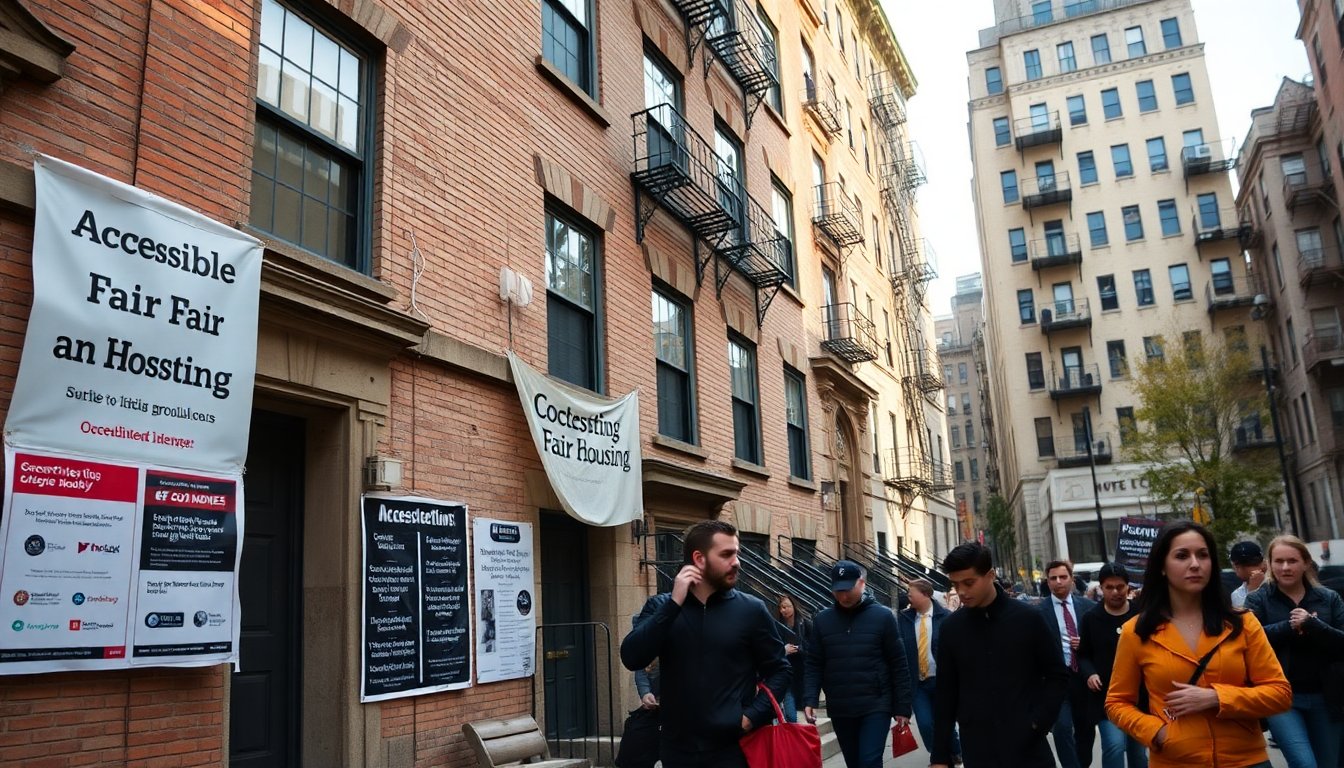Table of Contents
The discussion surrounding affordable housing in New York City has escalated, particularly with political figures like Zohran Mamdani emerging as advocates for housing affordability. A recent exchange on MSNBC highlighted the tensions related to Mamdani’s personal housing situation, raising questions about the authenticity of his campaign message given his residence in a rent-stabilized apartment. This incident not only underscores the complexities of the housing crisis but also illustrates how personal circumstances can impact political dialogue.
The Debate Unfolds
During a live segment on MSNBC, Republican strategist Susan Del Percio confronted Democratic operative Michael Hardaway regarding Mamdani’s living arrangements. Del Percio characterized Mamdani as a “hypocrite,” arguing that it is inconsistent for him to criticize the lack of affordable housing while benefiting from a rent-stabilized apartment. Her remarks reflect a widespread perception that politicians advocating for affordability should embody those principles in their own lives.
Del Percio’s assertion that Mamdani’s situation exemplifies a disparity between his income and the experiences of average New Yorkers resonates with many viewers. She emphasized that the candidate’s significant earnings should disqualify him from benefiting from rent stabilization, a system intended to protect lower-income residents from rising rents. This contention highlights broader societal issues related to income inequality and its impact on housing access.
Conversely, Hardaway defended Mamdani by arguing that the focus should not be on his personal circumstances but rather on the urgent issue of affordability affecting countless New Yorkers. He pointed out that the central concern is not whether Mamdani qualifies for rent stabilization, but rather the systemic problems leading to unaffordable living conditions for the majority. This duality in perspectives illustrates the challenges candidates face in balancing personal accountability with public policy.
Affordability as a Central Theme
Mamdani’s campaign prominently features affordability, a critical issue for many New Yorkers facing rising rents, soaring grocery prices, and increased transportation costs. His message resonates with voters seeking relief from financial pressures, yet his personal housing situation has drawn scrutiny. The contrast between his campaign platform and his living arrangements raises questions about the integrity of political messaging.
The controversy has sparked a broader debate regarding the implications of political figures residing in subsidized housing while advocating for systemic changes. Critics argue that such situations may undermine the credibility of candidates who claim to represent the struggles of everyday citizens. As rents reach record highs across the city, voters are increasingly aware of the disconnect between politicians’ lifestyles and the realities faced by their constituents.
Moreover, the political landscape is evolving as candidates like Mamdani embrace democratic socialism, a movement emphasizing economic equity and social justice. Hardaway suggests that criticisms directed at Mamdani stem from a class struggle narrative, framing the challenges faced by left-wing candidates as an attempt to suppress progressive voices. The ongoing discourse around affordability is not merely a campaign issue; it reflects deeper societal values and the changing nature of political engagement.
Looking Ahead: The Future of Affordable Housing in NYC
As the debate over affordable housing intensifies, it is vital for candidates to navigate their personal narratives thoughtfully while addressing systemic issues. The optics of politicians benefiting from rent stabilization while advocating for housing reform can present significant challenges in building public trust. Moving forward, it will be essential for Mamdani and others in the race to clearly articulate their vision for affordable housing while ensuring their personal circumstances align with their political messages.
Ultimately, the question of affordability in New York City transcends individual candidates; it is a pressing issue that demands comprehensive solutions. The dialogue initiated by this recent debate serves as a reminder of the complexities involved in addressing housing insecurity and the need for authentic political engagement. As New Yorkers continue to seek relief from financial burdens, the focus should remain on developing actionable policies that promote true affordability in the housing market.


